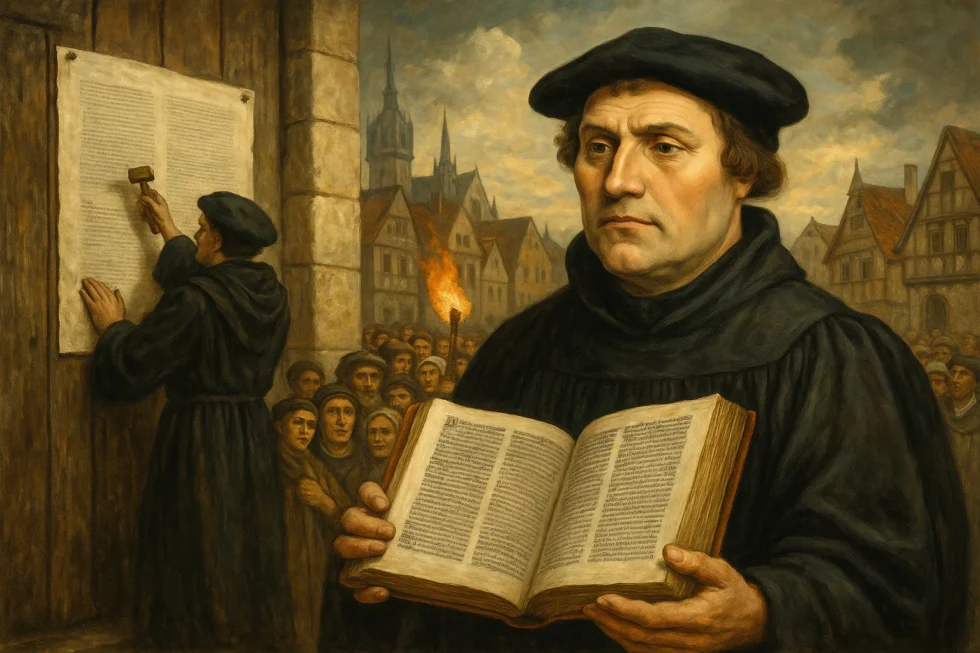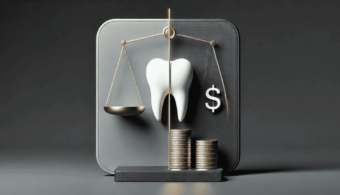Martin Luther and Reformation Day: Origin, History and Meaning in Germany

On October 31, Germany celebrates Reformation Day – one of the most important commemorative days of the Protestant faith. The day honors Martin Luther, the reformer from Saxony who in 1517 sparked the Reformation and profoundly changed not only the church but also language, culture, and education in Germany, as reported G.business.
Who was Martin Luther
Martin Luther was born on November 10, 1483, in Eisleben (now Saxony-Anhalt). He first studied law at the University of Erfurt before deciding, after a near-death experience during a thunderstorm, to devote his life to God. He entered the Augustinian Monastery in Erfurt and later became a professor of theology in Wittenberg.
At the core of his teaching stood the belief that only faith (sola fide) justifies man before God – not good deeds or indulgences. Luther openly opposed the sale of indulgences, a practice in which believers paid money to have their sins forgiven.
On October 31, 1517, Luther published his 95 Theses against the sale of indulgences, which he famously nailed to the door of the Castle Church in Wittenberg. This act marked the beginning of the Reformation, a movement that split the Church and gave birth to Protestantism.
The Path of the Reformation
Luther’s ideas spread rapidly throughout Europe thanks to the newly invented printing press. In 1521 he was excommunicated by the Pope and declared a heretic by Emperor Charles V at the Diet of Worms. Protected by the Saxon Elector Frederick the Wise, Luther found refuge at the Wartburg Castle near Eisenach, where he translated the New Testament into German in just eleven weeks.
This translation made the Bible accessible to the general public for the first time and laid the foundation for the modern German language. After returning to Wittenberg, Luther married the former nun Katharina von Bora in 1525, and they had six children. He died in 1546 in Eisleben, the town of his birth.
Where is Reformation Day a Public Holiday
Reformation Day is not a nationwide holiday in Germany. Its status varies from state to state.
The following federal states observe Reformation Day as a public holiday:
| Federal State | Status | Remark |
|---|---|---|
| Saxony-Anhalt | Public holiday | Home of Wittenberg, center of Reformation |
| Brandenburg | Public holiday | Since 1990 after reunification |
| Mecklenburg-Western Pomerania | Public holiday | Since 1990 |
| Saxony | Public holiday | Strong Protestant tradition |
| Thuringia | Public holiday | Luther lived in Erfurt and Eisenach |
| Schleswig-Holstein | Public holiday | Since 2018 |
| Hamburg | Public holiday | Since 2018 |
| Bremen | Public holiday | Since 2018 |
| Lower Saxony | Public holiday | Since 2018 |
In Bavaria, Baden-Württemberg, and Saarland, people instead celebrate the Catholic holiday All Saints’ Day (November 1). In Berlin, October 31 is not an official holiday, but many churches and communities hold services and cultural events.
How Reformation Day is Celebrated
Across Protestant regions, church services, readings, and organ concerts take place on October 31. In Wittenberg, Eisleben, Erfurt, and Eisenach, exhibitions and city tours commemorate Luther’s life and work.
A regional specialty is the “Reformationsbrötchen”, a sweet pastry from central Germany traditionally baked for this day. Schools and most public offices in the holiday regions remain closed.
Believers use this day to reflect on the key values of the Reformation: education, personal responsibility, and freedom of faith and conscience.
Why Reformation Day Matters
Reformation Day is more than a religious holiday – it symbolizes courage, renewal, and intellectual freedom. Luther stood up to a powerful system and triggered a movement that paved the way for the Enlightenment and modern democracy.
In 2017, marking the 500th anniversary of the Reformation, Reformation Day was celebrated as a one-time national holiday across Germany. Since then, debates about making it a permanent nationwide holiday have resurfaced.
Places of Reformation Heritage
Those wishing to follow in Luther’s footsteps can visit the “Luther Sites”, recognized by UNESCO as World Heritage since 1996:
- Wittenberg – Castle Church, Luther House, and Melanchthon House
- Eisleben – Luther’s birthplace and death house
- Eisenach – Wartburg Castle, where he translated the New Testament
- Erfurt – Augustinian Monastery, where Luther became a monk
- Torgau – Site of the first Protestant church
Reformation Day on October 31 marks a turning point in German and European history. Martin Luther was not only a theologian but also a pioneer of language, education, and conscience. His Reformation led to the birth of the Protestant Church and changed Europe forever.
Even today – more than 500 years later – Reformation Day stands as a symbol of truth, courage, and freedom of thought, values that remain vital in a modern, diverse society.
Stay connected for news that works — timely, factual, and free from opinion — and insights that matter now: Why is the Blue Man Group leaving Berlin in 2025? The final act of a legendary show





